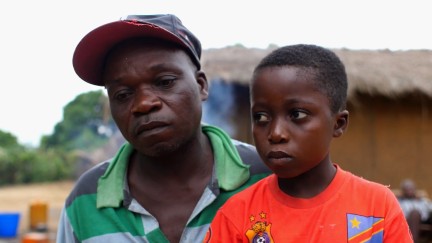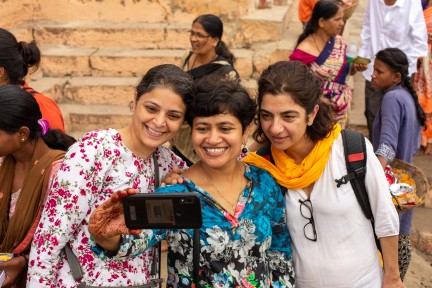Support for genomic database initiative could lead to better treatments across Africa
Date
15 November 2022
GSK, Novartis
Burkina Faso, Mali, South Africa
Malaria, Tuberculosis
Building R&D capacity by supporting local scientists in different African regions through fellowships and grants to support independent research, including funding for the study of genetic diversity and impacts on response to therapeutic products
For local researchers to build knowledge and R&D capacity, to publish and present on scientific forums and to develop a database that will be publicly available
As few pharmacogenomic data have been collected from people living in Africa, those used to develop medicines come mostly from outside the continent. Genomics differ both between and within continents, so this may affect the efficacy of individuals’ response to treatment – and thus, possibly, also for major diseases with a high burden in African countries, such as malaria and tuberculosis. More genomic data is needed to improve the process of drug development and improve our understanding of efficacy and tolerability of current treatments.
Africa Genomic Research Approach for Diversity and Optimising Therapeutics (GRADIENT)
GSK and Novartis address this need through GRADIENT, an initiative established in 2018 as a consortium to support high-quality scientific research that investigates links in genetic diversity across different regions in Africa. Three funding mechanisms are used to support local scientists in different African regions to help build R&D capacity: fellowships in academic institutions to collect and analyse data on determinants of drug response; support for hypothesis-driven research focused on understanding genetic regional variation in drug response; and a seed fund for projects to explore new research goals arising from the first two. GSK and Novartis have jointly committed GBP 2.8 million to fund this over five years, and actively support its projects.
Opportunities to further research into malaria and tuberculosis
In 2021, GRADIENT asked African researchers to submit research proposals on the relevance of diversity when treating malaria and tuberculosis. It will give priority to research that aims to collect data from under-represented regions in Africa and improve the scientific robustness of inconsistent data. Proposals from Burkina Faso, Mali and South Africa were chosen, and researchers and institutions are now being funded to build knowledge, publish/present on scientific fora and develop a public genomic dataset to further the understanding of medicine efficacy and toxicity in African regions. Annotated genetic variants, for example, could inform ongoing and future research on malaria and tuberculosis, and show how genetic factors affect responses to treatment. Researchers and institutions will initiate and lead research, owning data from studies but ensuring its availability to the public via a database.
GSK and Novartis oversee the initiative via a joint steering committee. Their partner, the South African Medical Research Council, joins them on an administrative steering committee. Both committees meet regularly, dividing roles, strategic decision-making and consultation. Other partners include local universities and public research institutions, and scientific reviewers (both local and international experts) who will provide input to ensure quality. GRADIENT will also help build scientific infrastructure and publish its outcomes.
Paving the way for tailored treatments in low- and middle-income countries (LMICs)
Clearly, genetics have an impact on how medicines work in individuals. By funding the creation of an open dataset to highlight how continental differences may influence therapeutic outcomes, GSK and Novartis make a valuable step to increase understanding. The ambitions and possible impacts of GRADIENT stand out: it sets long-term goals to obtain a dataset which has the potential for widespread benefit. Filling this gap could help many people in LMICs affected by malaria and tuberculosis, and if expanded to include other diseases the project could help many more.
The Index encourages companies with resources and knowledge to build capacity in LMICs to follow suit. Training, educating and clinical trials in LMICs remain important for access, but initiatives such as GRADIENT (and its creation of new datasets) may pave the way for tailored treatments, increase positive impacts in low-resource settings, and help open new markets.

